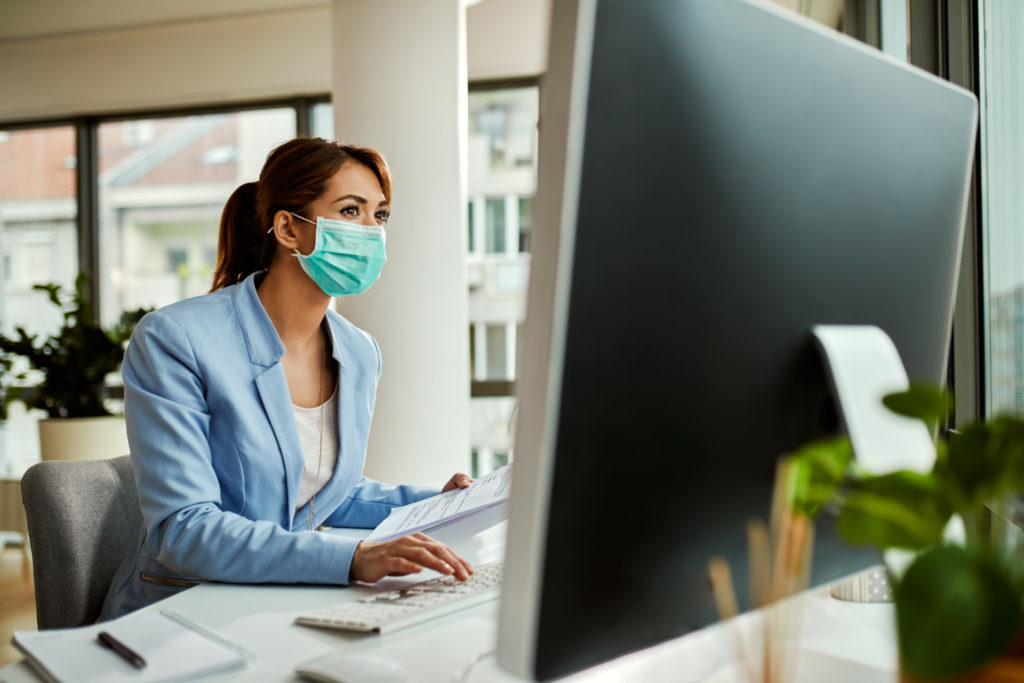
The importance of protecting employees for a successful return to business
Gran Via Business & Meeting Center Barcelona stresses the need to maintain security measures firmly in workspaces to restore user confidence.
Companies and SMEs that locate their workplaces in a workspace are finding it increasingly urgent to restart their work processes normally after many months of work being influenced by the coronavirus. This requires workspace solutions that can efficiently manage current health and safety measures while strengthening users’ trust and interaction with their workspaces. Ensuring people’s safety and security is of paramount importance.
That is why business centres have to be more alert than ever to the probable return of users to their offices and flexible spaces, while remaining vigilant to the attitudes they may have on a daily basis. Gran Via Business & Meeting Center wanted to reinforce the most important aspects of working in a controlled workspace with which the sector can show its efforts to give continuity to the business.
Flexible workspaces: A preferable option
Workspaces have always had the advantage when it comes to cost-effectiveness over the traditional office. Users expect to see a faster revival with improving statistics. As the pandemic scare subsides and many businesses look to resume business as usual, flexible spaces will be the first preference for many, as they are the most cost-effective in terms of rental period. In addition, companies cannot continue to work from home for long, as most of them have functions that require a high level of supervision that is only available in a formal work environment. These companies rely heavily on infrastructures to work efficiently. Going forward, business centres that have not already done so will have to redesign their workspaces, focusing more on an all-weather work environment.
Maintaining behaviour and respect for the physical space
Once work resumes as normal as possible, workspaces will require more than ever the maintenance of behaviour and respect for physical space on a large scale, which differs drastically from the pre-COVID era, when optimising the use of office space was a priority.
The workspace sector will have to strive to maintain boundaries in many aspects: seating in offices according to social distancing rules, virtual meetings, increased hygiene protocol with regular sanitisation of spaces and also hand sanitisation of all members entering them. To this end, it is important to have provided hand sanitisers and to replace biometrics with access cards.
Some important measures also need to be supported by the users of the centre: staggering of meal times with delimitation of seating, adequate space between workstations, increasing the distance between seats in meeting rooms, restricting meetings in common areas, delimitation of standing areas at entry and exit points, restrictions on movement of members between floors….
Workspace managers will need to encourage members to use the best of their civility when making use of the common facilities in the workspaces as hygiene remains the top priority.
It is increasingly common for people to keep their distance and wear masks just in case: everyone knows they are facing an extreme threat. Risk management will now be an inevitable part of the decision making process in any space, especially as the vast majority of businesses return to business as usual.
